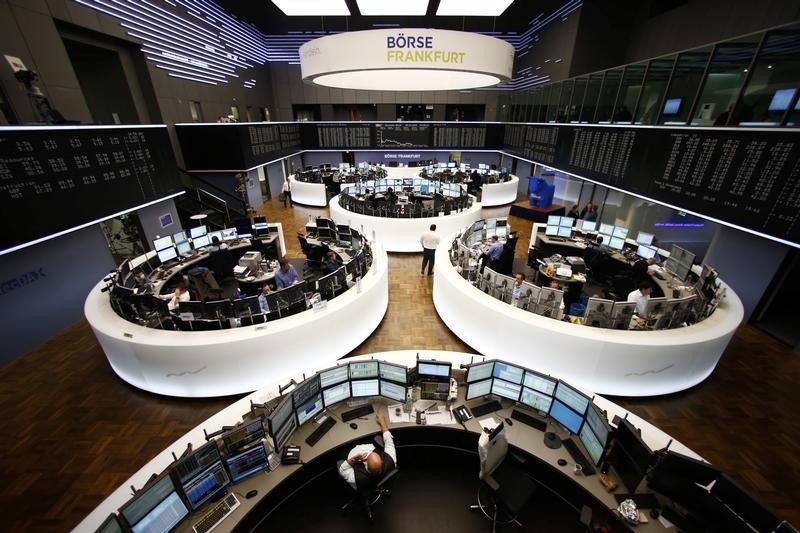By Ritvik Carvalho
LONDON (Reuters) - Global stocks started the new month on firmer ground on Thursday after a brutal October, while sterling rallied on reports that Britain and the European Union are close to a post-Brexit deal on financial services.
The MSCI All-Country World Index, which tracks stocks in 47 countries, was up 0.3 percent on the day.
October was the index's worst month since May 2012 - a loss of 7.5 percent - as shares globally took a battering on a number of factors ranging from trade wars to concerns about the global economy and higher U.S. interest rates.
European markets followed a strong start in Asia, with robust company earnings helping the pan-European STOXX 600 index hit a two-week high. (EU)
Britain's FTSE 100 however fell 0.1 percent as the pound strengthened on a report Britain and the EU are close to a deal that would give financial services firms in the UK continued access to European markets once Brexit happens.
"This is a significant development for the pound as it alleviates some market concerns on how London would finance its big current deficit," said Ulrich Leuchtmann, a currency strategist at Commerzbank (DE:CBKG).
MSCI's broadest index of Asia-Pacific shares outside Japan rose 0.7 percent, adding to modest gains the previous day. The index had fallen 10.2 percent in October, its worst monthly performance since August 2015.
The improved mood had filtered down to Asia from Wall Street, which rose for a second day on Wednesday as strong company results and bargain hunting of beaten-down technology and internet favorites lifted spirits. (N)
Hong Kong's Hang Seng rose 1.5 percent on Thursday and the Shanghai Composite Index climbed 0.2 percent.
Japan's Nikkei bucked the trend and slipped 1 percent following two days of big gains.
"What we are seeing is the equity markets trying to rebound after bottoming out. Corporate earnings in the U.S. and Japanese markets have been relatively strong on the whole, which means there are plenty of bargain hunting opportunities," said Soichiro Monji, senior economist at Daiwa SB Investments in Tokyo.
RISK SENTIMENT RECOVERS
In currencies, sterling's rally nudged the dollar off its recent peak. The index measuring the greenback's strength against a basket of six major currencies was down 0.6 percent at 96.539.
The index had spiked to a 16-month high of 97.20 overnight on a ADP (NASDAQ:ADP) national employment report showing U.S. private sector payrolls increased by the most in eight months in October.
The dollar has enjoyed a boost from robust data, including last week's GDP numbers which showed the U.S. economy slowed less than expected in the third quarter.
The Australian dollar and the Kiwi dollar were up 1.2 percent and 1.4 percent respectively after strong domestic trade data helped offset some of the concerns about slowing growth in China - Australia's biggest trading partner.
"We've got a reasonably risk-friendly market, and with the new month we have some dollar selling," said Kit Juckes, a strategist at Societe Generale (PA:SOGN).
In another sign risk sentiment was improving, Scandinavian currencies - the Norwegian crown and Swedish crown - rallied as well.
The euro rose over half a percent to $1.1376 after retreating to $1.1302 on Wednesday, its lowest since mid-August.
The single currency has been weighed by less-than-stellar economic news from the euro zone.
In commodities, U.S. crude futures were down 0.86 percent at $64.75 per barrel and Brent crude lost 1.13 percent to $74.19 per barrel. [O/R]
The two benchmarks remained on the back foot after falling more than $10 from a four-year peak reached early in October as broader market ructions were seen hurting demand for fuel.
